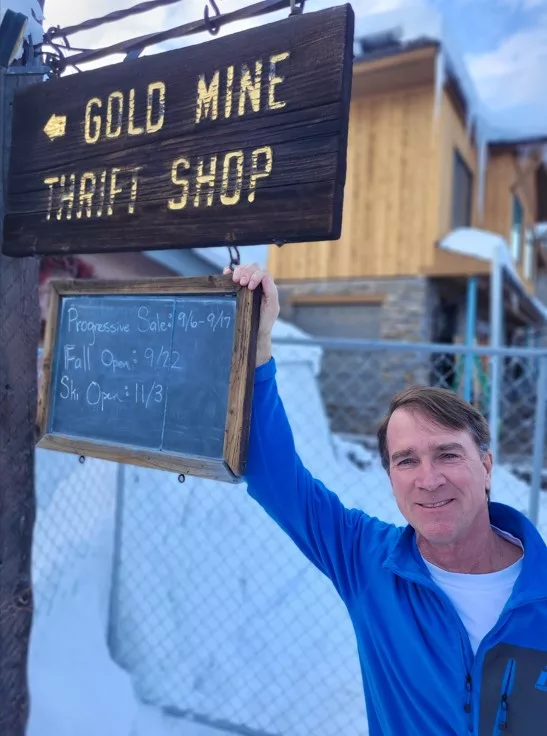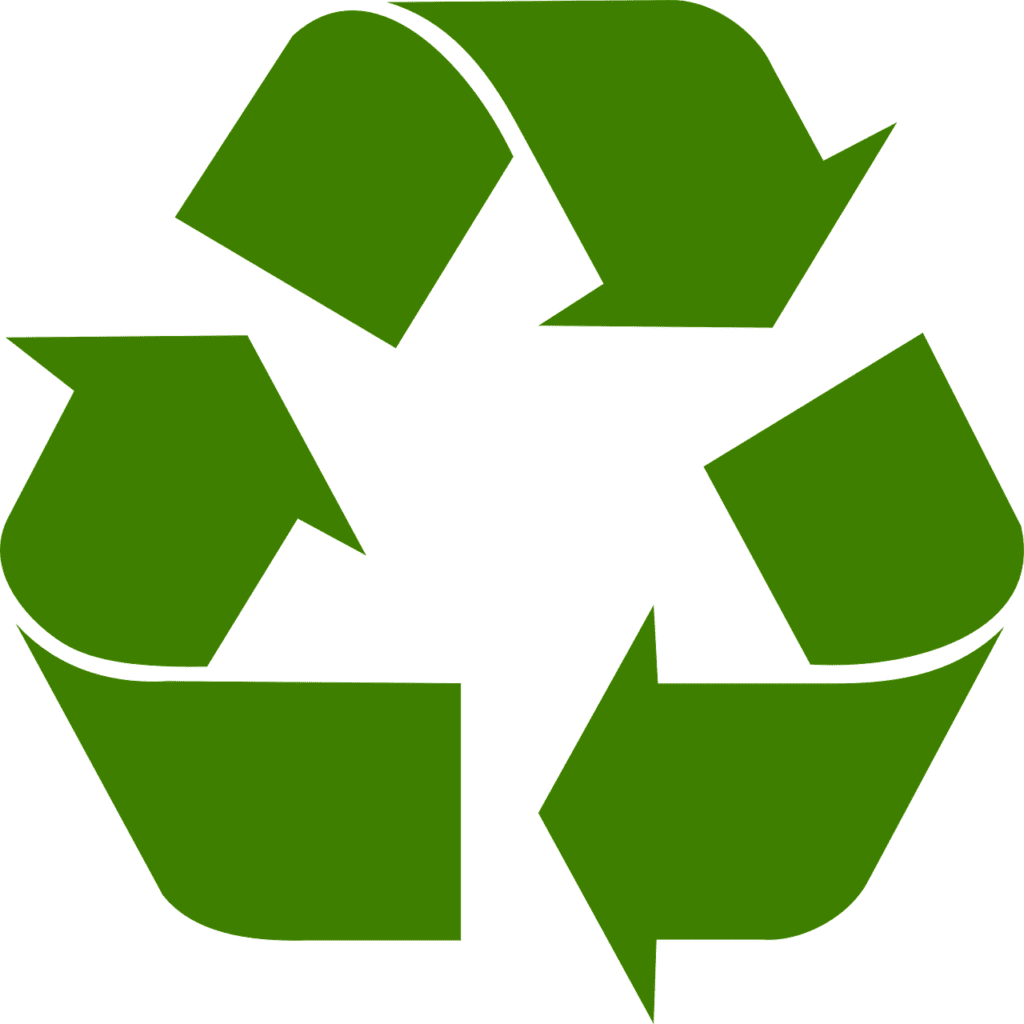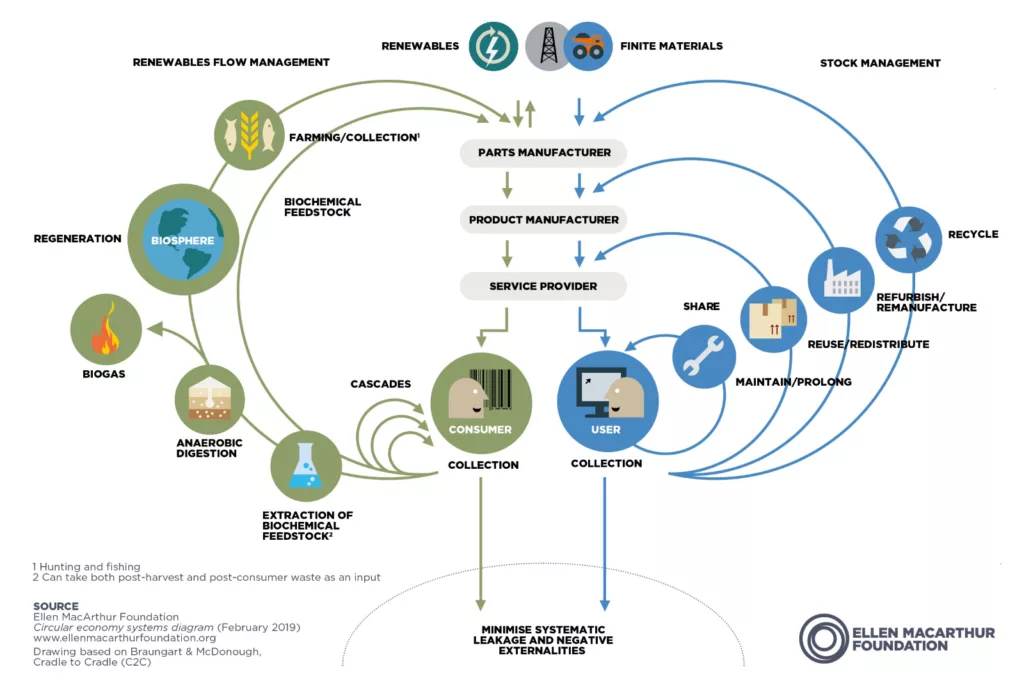A Bold New Economy at the Gold Mine
By Craig Barry, Managing Director, Gold Mine Stores

Roughly 15,000 vehicles roll through the alley behind the The Gold Mine thrift store each year donating roughly 225,000 items— from vintage ski pants to flat screen TVs to Waterford crystal goblets. We triage the donations, sort, cull, price, and put the best-of-the-best of them on the floor for sale. Purchases from the Gold Mine help support the programs, classes, and collections at The Community Library, as well as employing 17 people, and supporting an icon of the local community (est. 1955).
When you donate something to The Gold Mine, you’re doing much more than clearing out space in your closet or garage. When you purchase something from the Gold Mine, much more than a “screaming good deal” is happening.
You’re helping change the world, one ski hat, one coffee maker, one cashmere sweater at a time.
Recycling is a concept or practice with which we all feel pretty comfortable. Recycling, however, is often misunderstood, and over the past several decades has increasingly shown its age.
A new era in thinking has emerged in how we should better address consumption … Enter the circular economy.
The ubiquitous chasing arrows represented how we, as consumers, were supposed to approach the material objects in our lives. These arrows depict how we should first and foremost:

- “reduce” the amount of materials needed;
- “reuse” those items that find their way into our lives;
- and finally once we’re finished with something, “recycle” what’s left.
Yet reduction is often overlooked, reuse is often conflated with recycling and true recycling works for a limited set of items. What kicked off in the 1980s as means to interrupt a linear progression of materials – extraction, manufacturing, consumption to ultimately disposal or landfilling – is now a firmly rooted, if not somewhat weathered, vestige of a decades old perception of how to save the planet.
That was then; this is now. A lot has changed.
We’ve realized that recycling is actually pretty challenging—and even more so in rural areas like ours. We’ve realized that recycling does a great job with certain materials (aluminum, cardboard, office paper) but not for all (mixed paper, plastics). Most importantly, we’ve realized that this approach to the complicated way that our society uses materials is oversimplistic and ultimately inadequate in addressing increasingly more serious climate concerns.
Far from the “Reduce, Reuse, Recycle” paradigm that kicked off in the 1980s, a new era in thinking has emerged in how we should better address consumption. Instead of trying to moderate a linear system, it wants to entirely shift this paradigm to a circular system.
Enter the circular economy.
This shift seeks to meld the world of finite material resources with the world of renewables such as energy and biodegradable items including compost and food waste.

Conceptually, the circular economy looks to repudiate longstanding linear models. These linear models all relied on an assumption that there was always somewhere else materials could go (just throw it away) and that there would always be an amount of finite materials to feed our economy. Neither of those assumptions are true and, as the years advance, seem more and more absurd. Whether it’s water, oil, clean air, or lithium, it’s clear that we have been increasingly taxing our resources and that this trend shows no sign of abating.
The circular economy seeks to change all that by introducing a new way of thinking for renewables and materials. It is based upon three basic principles that are rooted in “smart design”:
- Elimination of waste and pollution by breaking the “take-make-waste” system
- Preserve products and materials at their highest value by fostering greater circulation
- Regenerate nature by designing products to return to a natural or biodegradable state
It’s much more than “keeping items out of the landfill.” It’s about acknowledging that these items possess intrinsic value that are worth much more than they would have been if they were disassembled and recycled or landfilled.
So what might all this have to do with our community? Thrifts, such as the Gold Mine, the Attic, Barkin, and the Building Thrift, are all squarely aimed at principle #2 – preserving products at their highest value. It’s much more than “keeping items out of the landfill.” It’s about acknowledging that these items possess intrinsic value that are worth much more than they would have been if they were disassembled and recycled or landfilled. Moreover, our secondhand stores are not only reusing items but they are reusing items that come from the community itself. It is not unusual for items to circulate through the Gold Mine several times, renewing its value at each cycle. Ideally, these items would also be manufactured here (think Jytte hat) but by recirculating items locally we help bolster this circular economy.
Could we do more? Sure. In addition to promoting more reuse, we can also look towards prolonging the usefulness of items by properly maintaining and repairing them. Why buy a new vacuum when you could repair this one? We could also look at strengthening our sharing economy. Why own a drill that sits idle 95% of the time when you can borrow one? These are all areas in which we could expand our services and areas that would help strengthen our circular economy.
So next time you’re looking to “recycle” clothes, gear, housewares, etc. at the Gold Mine, remember that you are doing so much more than “recycling.” You are recognizing that your items possess more value in their present form than they could ever have being recycled or landfilled. Just as our donors help stock our store, our customers help complete that circle with their purchases. They not only provide much needed funds to support worthy causes, but they are also helping to shift our economy in more sustainable and circular directions.
